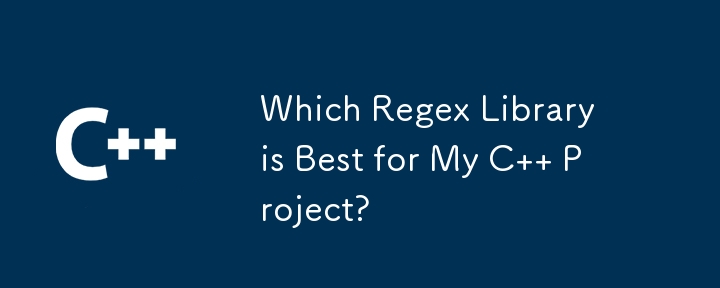
Choosing a Regex Library for C
When working on complex C projects, incorporating regular expressions (regex) becomes necessary. With a wide range of regex libraries available, it's crucial to select the most suitable option.
Commonly Used Regex Libraries:
-
Boost.Regex: Offers a comprehensive and standards-compliant regex solution, expected to be part of the C 0x standard.
-
C POSIX regex: Provides basic regex functionality, but lacks the advanced features and extensibility of higher-level libraries.
-
Cpp_regex: A GPL-licensed library that is not suitable for commercial projects.
Recommended Options:
Boost.Regex:
-
Pros: Standards-compliant, mature, and widely used.
-
Cons: Requires additional Boost library dependencies.
Boost.Xpressive:
-
Pros: Header-only, convenient for simple regex needs, supports static regexes.
-
Cons: May not be as comprehensive as Boost.Regex for complex patterns.
std::regex (C 11):
-
Pros: Embedded in the C standard, provides seamless integration and portability.
-
Cons: Only available in modern C compilers (e.g., gcc version 4.8 or later).
Additional Considerations:
-
Performance: Benchmark different libraries to determine the most efficient option for your specific use case.
-
Extensibility: Consider if you require the ability to extend or customize the regex syntax.
-
Ease of Use: Evaluate the syntax and documentation of each library to determine which is most user-friendly.
Ultimately, the best regex library for your project will depend on your specific requirements. By carefully evaluating the options discussed above, you can make an informed decision and find the solution that best suits your needs.
The above is the detailed content of Which Regex Library is Best for My C Project?. For more information, please follow other related articles on the PHP Chinese website!






